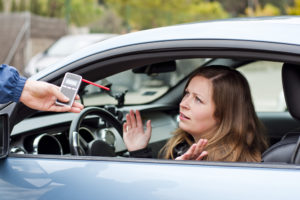
The actual DWI dismissal rate in Texas is difficult to determine. The data does indicate that a large percentage of people facing drunk driving charges enter a guilty plea. Among those who do not, however, the rates of dismissal and conviction on lesser charges are noteworthy – approximately 10 to 15 percent for dismissal and another 30 percent for conviction on a lesser charge.
One statistic we can cite with certainty is that, if you plead guilty to drunk driving in Texas, you have virtually no chance of having your case dismissed.
Why Is the Texas DWI Dismissal Rate Difficult to Determine?
A study previously conducted by the National Highway Traffic Safety Administration (NHTSA) found that many law enforcement agencies across the U.S. do not track their DWI conviction or dismissal rates. Among those that do, few report the information to the public.
The reasons for this are twofold:
- If a law enforcement agency publishes a conviction or dismissal rate for DWI, but their data is later found to be incorrect – or if the public misinterprets the data – it may cause a public backlash.
- If a law enforcement agency has a poor rate of conviction or a high rate of DWI dismissal, this would not serve as an effective deterrent for drunk drivers.
In other words, if you got arrested for drunk driving in Dallas County, for example, and you knew that jurisdiction had a low rate of DWI dismissals, would you be as willing to plead guilty as you might if you knew they had a high dismissal rate?
How Do Texas DWI Arrest, Conviction, & Dismissal Rates Break Down?
According to the Texas Department of Public Safety (DPS), Texas law enforcement agencies reported just over 88,000 DWI arrests in 2016 (the last year for which complete data is provided). For various reasons, the police do not move forward with some charges. Among the 84,157 that did, however, approximately 63 percent entered a guilty plea.
Of the approximately 53,000 who did not plead guilty, prosecutors only convicted 37,000 – about 70 percent – on the original charges. Prosecutors convicted another 16,000 – about 30 percent – on lesser charges and approximately 7,000 – about 13 percent – had their charges dismissed.
So, if you do not agree to enter a guilty plea and, instead, elect to fight your DWI charges, you may have an almost 45 percent chance of having your charges reduced or dismissed.
Can You Get a Texas DWI Charge Reduced?
In those cases where you cannot get your DWI charges dismissed, you have the option of getting your charges reduced to a lesser offense. In Texas, some of those options include:
Obstruction of a Passageway
This charge is one of the most common compromises that prosecutors are willing to make for people facing a Texas DWI charge. This offense carries Class B misdemeanor charges, rather than the Class A misdemeanor or felony charges typically associated with DWI.
Reckless Driving
For individuals who face felony DWI charges, having your charges reduced to reckless driving (sometimes called “wet reckless”) means that you will face only a misdemeanor offense.
Depending on the type of offense you face, you may have other options for a reduction or dismissal of your charges. Unfortunately, this complex area of the law can be challenging to understand and maneuver through.
How Can You Get Your DWI Charges Dismissed or Reduced?
To obtain a conviction, the prosecutor must prove all legal elements associate with the specific charges you face. The basic elements for a DWI are as follows:
- That you operated a motor vehicle
- That you operated a motor vehicle in a public location
- That, at the time, you lacked the physical or mental capacity to operate a motor vehicle safely
The third element is typically the most difficult for a prosecutor to prove. In Texas, the police usually use a measure of blood alcohol concentration (BAC) as proof that you could not drive safely. BAC testing typically involves either a breathalyzer or blood testing. However, these chemical tests can be unreliable and, unless challenged, inaccurate BAC testing can send innocent people to jail. For that reason, Texas DWI lawyers often dispute the accuracy of BAC testing.
Other challenges that could get your charges reduced or dropped involve potential violations of your legal rights, such as:
- Lack of reasonable suspicion to pull you over
- Lack of probable cause to arrest you
- Failure to advise you of your rights per statutory guidelines

How Does Having a DWI Lawyer Affect Case Outcome?
After a drunk driving arrest, the prosecutor is likely to encourage you to plead guilty, telling you this will help you avoid jail time and put your mistake behind you.
Before you agree to enter a guilty plea, take advantage of the free consultation and case review offered by the Law Offices of Randall B. Isenberg. Call 214-696-9253 now to learn more about your options for getting a Texas DWI dismissal.










